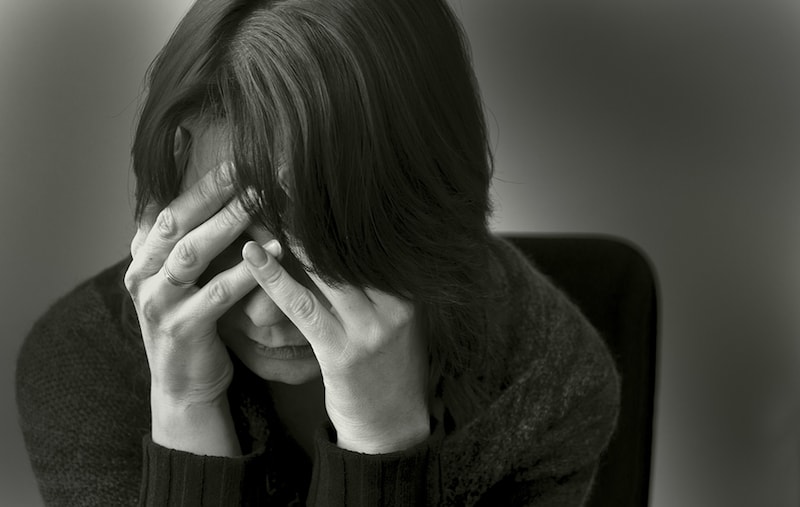 Part 1 of 2
Part 1 of 2
Nine months of preparation and anticipation and now you have finally met your newest family member. Having a newborn is an exciting and, yes, scary time. It can also include sadness and confusion. Finding yourself battling what is often called the baby blues is a common circumstance in women and, at times, in men.
The baby blues refers to the feeling of sadness or anxiety you may have after your child is born (postpartum). As your body readjusts, and all the anticipation is gone, you can find yourself with feelings that you don’t really understand.
You might also have concerns. How could you feel anything but happy during this time? Is this normal? What if it doesn’t change?
What Are The Baby Blues?
As if 9 months of ups and downs weren’t enough, after childbirth your body goes through a number of additional changes. These changes can cause everything from mood swings, to anxiety, to extreme fatigue. Couple that with the drastic change of adding a new and completely helpless person to your life, one that you are now in charge of, and you have a recipe for many complicated feelings.
Not to mention the changing dynamic between you and your partner. Among all the other things going on you may find that, at least initially, you have no interest in sex after a baby, something that may have been a normal part of your life up until labor.
Is Feeling Blue Normal?
Yes you are normal, and you are not alone. Most women experience some form of baby blues within the first few weeks after having a baby. In fact, there are many unexpected feelings after having a baby that no one tells you about. Baby blues are characterized by feeling sad, weepy or generally overly emotional. These feelings can last for 2-3 weeks after the baby is born.
Knowing ahead of time that this is something you may experience is important, as is talking about the possibility of these feelings with your partner. Your partner may be caught off guard by your sadness after childbirth. Many people assume that this time with your newborn should be entirely blissful.
While the baby blues are fairly short-lived, full blown postpartum depression is not and is much more serious. I have personally experienced both the baby blues, and postpartum depression and I can tell you, there is a big difference.
After the birth of my first daughter I found myself feeling sad. I knew ahead of time this was possible. What I was not prepared for was the intense anxiety that I felt over the coming weeks.
I developed an irrational fear that I might die at any moment, leaving my newborn alone in the house and unattended. I found myself incapable of being alone with her, as a result I was spending all my time in public places or with friends. Sadly, I was very bad company as my fear transformed into worries that I had some unseen disease that would strike me down at any moment.
I didn’t realize it at the time, but I had gone from baby blues to postpartum depression. I clearly remember sitting at the dining table with my husband, crying as he looked at me with confusion asking what he could do. Aside from just being there for me, there wasn’t anything. I knew something felt wrong, but I had no idea I was depressed or what to do.
What Should I Do?
I did finally speak with my OBGYN. He recognized what I was experiencing and, with his help, I was feeling better by the 10 week mark. If your feelings of sadness and/or anxiety seem particularly intense, or are going on for several weeks, you may also want to speak with your physician.
In my case, I did not have a repeat experience with my second child. I was on the lookout for the symptoms, but aside from general moodiness, I was fine.
If possible, knowing ahead of time that feeling blue after childbirth is normal will help. Unfortunately, the mental and emotional health of the mother (and father) after birth are not often discussed ahead of time, so many are caught off guard.
If you find that you are feeling depressed or anxious after having a baby, talk about it. Talk to your partner, or to a friend, or to your physician. You may be surprised at how common the baby blues are. Knowing that there are others who have had the same experiences can be very comforting.
Having a baby is one of the largest events in any person’s life. It makes sense that there will be many mixed emotions during this time. Try to remember that there is nothing wrong with feeling sadness in addition to joy. The baby blues will fade as your life settles down. Then you can happily look forward to the teenage years which bring on a whole different shade of blue.
Looking for More? Check Out These Articles
- Do Daddys Get the Blues Too? - Part 2 of 2
- Feeling Unattractive to My Husband After Having a Baby
- I Don't Know Why My Wife Hates Me
- Get More Depression Help





















Comments
Currently, there are no comments. Be the first to post one!